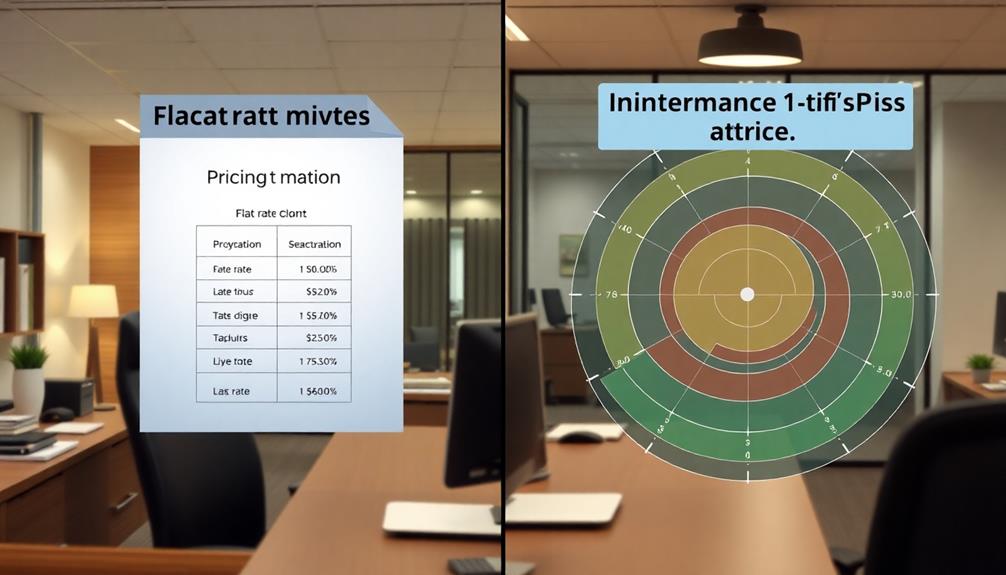Reconciliation and settlement reports are essential for ensuring your financial transactions are accurate, secure, and trustworthy. They help you spot discrepancies early, prevent errors, and detect fraud before it causes harm. By confirming that payments are properly processed and recorded, these reports support compliance and reduce the risk of financial misstatements. Using these tools streamlines your operations and builds stakeholder confidence, and understanding their importance can make a significant impact on your organization’s financial health.
Key Takeaways
- They ensure transaction accuracy by verifying data consistency across records, preventing financial discrepancies.
- They support fraud detection by identifying suspicious activities or mismatched transactions early.
- They provide essential documentation for auditing, compliance, and regulatory reporting processes.
- They enable timely settlement of payments, reducing delays and financial risks.
- They automate reconciliation processes, increasing efficiency and minimizing human errors.

Have you ever wondered how businesses guarantee their financial records match and transactions are accurately settled? The answer lies in the essential process of reconciliation and settlement reports. These reports serve as the backbone of financial integrity, ensuring that every transaction recorded aligns perfectly with bank statements, payment processors, and internal records. Without them, discrepancies can go unnoticed, leading to potential financial losses, errors, or even fraud. One of the key components in maintaining accuracy is data validation, which involves meticulously checking each transaction for accuracy and completeness. This process helps catch common mistakes, such as duplicate entries or incorrect amounts, before they escalate into larger issues. Data validation acts as a gatekeeper, verifying that all data entered into the system is correct and consistent, laying the foundation for trustworthy financial reporting. Additionally, regular reconciliation enhances financial accuracy by providing ongoing oversight and early detection of issues.
Moreover, reconciliation reports are indispensable for fraud detection. They enable you to identify anomalies or suspicious activities that could indicate fraudulent transactions. When records don’t match or discrepancies appear unexpectedly, it prompts a deeper investigation. For example, if a transaction is recorded twice or if an amount doesn’t align with the expected value, these irregularities can be signs of fraud or errors. Regular reconciliation acts as an early warning system, helping you spot potential threats before they cause significant damage. This proactive approach not only safeguards your finances but also builds trust with clients and stakeholders by demonstrating transparency and diligence.
Settlement reports further enhance financial accuracy by confirming that payments are correctly processed and received. When settlements are properly documented, you can ensure that all parties involved in a transaction are paid promptly, reducing delays and disputes. These reports also provide a record trail that supports auditing and compliance efforts, making it easier to verify that all transactions adhere to legal and regulatory standards. In essence, settlement reports serve as proof that the agreed-upon amounts have been transferred and settled properly, minimizing the risk of financial misstatements.
In today’s fast-paced financial environment, relying solely on manual checks is risky and inefficient. Automated reconciliation and settlement processes, empowered by robust data validation techniques, streamline operations and reduce human error. They also enable real-time monitoring, allowing you to detect discrepancies or suspicious activities immediately. By prioritizing accurate reconciliation and settlement reporting, you protect your business from financial inaccuracies, fraud, and regulatory penalties, fostering a culture of integrity and trust. Ultimately, these reports are indispensable tools that help you maintain precise financial records, ensure compliance, and strengthen your organization’s reputation.
Frequently Asked Questions
How Often Should Reconciliation Reports Be Generated?
You should generate reconciliation reports regularly, typically on a monthly basis, to guarantee accuracy and detect discrepancies early. Your report frequency depends on your transaction volume and industry standards, but conducting frequency analysis helps determine the ideal schedule. By maintaining consistent reconciliation, you minimize errors, improve financial transparency, and stay compliant. Make it a habit to review these reports often, adjusting the frequency as needed based on your business’s activity level.
What Tools Are Best for Automating Settlement Reports?
Think of automated software as your financial compass, guiding you through complex settlement reports effortlessly. You should choose reporting tools like QuickBooks, Xero, or Sage, which are reliable for automating settlement reports. These tools streamline data collection, guarantee accuracy, and save you time. By integrating these reporting tools, you empower yourself to stay on top of transactions, reducing errors and making reconciliation a smooth, almost instinctive process.
How to Handle Discrepancies Found During Reconciliation?
When you find discrepancies during reconciliation, start with discrepancy investigation to identify the root cause. Document your findings thoroughly and communicate with relevant teams to verify the data. Implement corrective action procedures promptly to resolve the issue, such as adjusting records or updating processes. Regular follow-up guarantees the discrepancy is resolved, preventing recurrence. Staying proactive and systematic helps maintain accurate settlement reports and overall financial integrity.
Who Should Review and Approve Settlement Reports?
You should review and approve settlement reports by following audit procedures and conducting thorough data validation. Make certain that a qualified team member, such as a supervisor or finance manager, verifies the accuracy of the data, confirms compliance with policies, and checks for discrepancies. This process helps prevent errors, maintains financial integrity, and ensures that only accurate reports are approved for settlement, safeguarding your organization’s financial health.
What Are Common Challenges in Maintaining Accurate Reports?
You often face challenges in maintaining accurate reports because data accuracy can be compromised by input errors or system glitches. Process consistency is vital, yet difficult to sustain across different teams or departments, leading to discrepancies. To overcome these issues, you should implement regular audits, clear procedures, and automated checks to guarantee data integrity and uniformity, ultimately improving the reliability of your reconciliation and settlement reports.
Conclusion
In short, reconciliation and settlement reports are your financial compass, guiding you through accuracy and trust. Think of them as a lighthouse shining through foggy waters, helping you avoid costly mistakes and ensuring everything lines up perfectly. By regularly reviewing these reports, you keep your finances transparent and secure. Remember, just like a well-tuned engine keeps a car running smoothly, these reports keep your financial operations on track and reliable.










